| HAPPY NEW YEAR and WELCOME to our fourth quarterly newsletter, rounding up the latest news and events from UNU-MERIT and its School of Governance. We explore the push and pull of international development: innovation through science and entrepreneurship, and governance through public policy analysis. Read on for the full lowdown. | ||
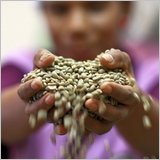 |
Latest News: Shaping the World Development Report 2014 Professor Wim Naudé went to Stockholm in December to contribute to the World Bank’s forthcoming World Development Report 2014, which will focus on ‘Managing Risk for Development’. Naudé made a presentation based on recent work published with the International Peace Research Institute in Stockholm and the Université Libre de Bruxelles. As part of this, he listed three strategies of ‘survivor firms’: from understanding the impacts of war, to diversifying supply chains, to keeping business in the family and empowering women. Naudé previously contributed to the WDR 2009. |
|
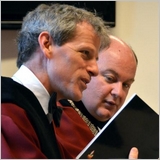 |
PhD Defences: The Final Reckoning December 2012 saw a flurry of defences including Rodolfo Lauterbach with ‘Innovation in manufacturing: From product variety and labour productivity growth to economic development in Chile’. Next up Bilal Mirza defended his research on ‘Energy Poverty and Rural Energy Markets in Pakistan’; and Fulvia Farinelli presented on ‘Natural Resources, Innovation and Export Growth: The wine industry in Chile and Argentina’. Our next defence will be on 1 March 2013, when Martin Rehm defends his thesis ‘Unified yet separated: Empirical study on the impact of hierarchical positions within communities of learning’. |
|
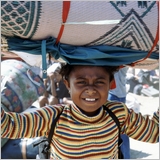 |
New Course on Managing Migration and Asylum The deadline is fast approaching for our Migration Management Diploma Programme (MMDP). Sponsored by the Dutch Foreign Ministry, we offer 10 scholarships per year to government officials from 40 developing countries with at least three years’ experience in the field of migration and/or asylum. Our three-month course builds both theoretical knowledge and practical skills such as presenting and articulation; how to write policy notes and memoranda; and how to deal with conflicting interests. The course is also open to practitioners and students interested in migration issues, though places are limited. APPLY NOW! |
|
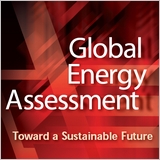 |
Global Energy Assessment: Fair and Sustainable Energy for All? The Global Energy Assessment (GEA), released October 2012, defines a new global energy policy agenda - one that transforms the way society thinks about, uses and delivers energy. It aims to ensure fair and sustainable energy services for all, in particular the two billion people who lack access to clean, modern energy. The GEA was written by leading energy experts, representing both the developed and developing worlds. From UNU-MERIT, Professors Lynn Mytelka and René Kemp were lead authors on Chapters 24 and 25 (Policies for the Energy Technology Innovation System and Capacity Building). DOWNLOAD IT HERE. |
|
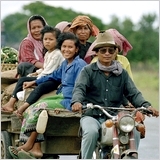 |
Report: Cutting Poverty and Boosting Social Protection in Cambodia Over the last 20 years Cambodia has cut poverty rates by a third, yet most of its people are still vulnerable to malnutrition, natural disasters and precarious employment. In support of the government's ‘National Social Protection Strategy for the Poor and Vulnerable’, UNICEF commissioned a study on the potential rates of return for investments in social protection. The study, authored by Andrés Mideros, Franziska Gassmann and Pierre Mohnen offers a new approach to estimate both short- and long-term returns. It shows the potential benefits of social protection instruments like cash transfers for children, social pensions, and public works programmes. |
|
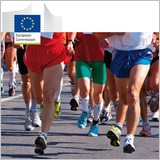 |
Innovation for Growth: Comparing EU Regions The Regional Innovation Scoreboard 2012, published November 2012, compares the innovation performance of 190 European regions. The results show a massive diversity not only across Europe but also within member states, particularly in France and Portugal. The EU's most innovative regions are in Denmark, Finland, Germany and Sweden; and capital cities are most often the national innovation leaders. These assessments are crucial because growth is increasingly related to the capacity of regional economies to change and innovate. The report’s lead author was Hugo Hollanders. |
|
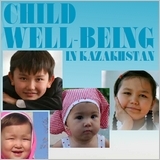 |
Report: Child Well-being in Kazakhstan A new UNICEF report, co-authored by Dr. Franziska Gassmann, provides a comprehensive analysis of child well-being in Kazakhstan. It analyses discrepancies between the well-being of children living in different parts of Kazakhstan, focusing on differences between various regions and between urban and rural areas. The study provides crucial information of who and where poor children are, what types of deprivations they suffer from, what might cause or alleviate their lack of well-being and how this can be addressed by social policies. |
|
 |
UNU Celebrates Four Decades On this day 40 years ago, 11 December 1972, the UN General Assembly agreed to set up an international university: henceforth known as the United Nations University. Today UNU comprises 15 research and training institutes in 13 countries around the world: from Canada to Venezuela, Iceland to Ghana, Malaysia to Japan. Our Master degrees cover everything from human security to environmental governance, while our PhD programmes focus on areas such as development economics and sustainable development. See our Prezi and article for a potted history of UNU. |
|
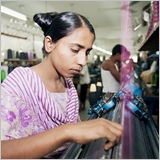 |
Report: Structural Change and Poverty Reduction in the BRICS The recent, rapid development of the BRICS has impressed both researchers and policymakers, prompting UNU-MERIT and UNIDO to probe the patterns of structural change across these countries. In this joint report, special focus is laid on the role of manufacturing and how far industrialization has helped poverty reduction. It was prepared by Adam Szirmai (UNU-MERIT), Wim Naudé (UNU-MERIT/MSM) and Nobuya Haraguchi (UNIDO), based on 14 background papers commissioned by UNIDO. |
|
 |
Governance and Political Science: Online Courses Are you too busy to be a full-time student for 10 weeks, but still want to improve your understanding of the theory and practice of governance? Or of political science? If yes, we have the solution. Join one of our online courses – at virtually any time – and you’ll gain a fast yet rigorous grasp of the foundations of both governance and political science. Our courses are designed to offer academic quality knowledge in a thorough and highly accessible way. APPLY NOW! |
|
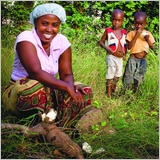 |
MAA Blog: Insights and Ideas In recent weeks our blog has shined a light on Africa’s diplomatic capital, Addis Ababa, weighing up both its transport system and prospects for sustainable development. Then after this year's Thanksgiving, we explored how developing markets are falling prey to consumerism. And amid a turbulent period for the BRICS’ final member, we looked into governance failure and the decline of entrepreneurship in South Africa. We also posted a review of our latest micro-innovation conference, held in Cape Town in late 2012. |
|
 |
Call for Papers: Upcoming Migration Events Migration is a key concern for policymakers following a spate of natural and man-made disasters. To better inform these debates, a fresh look is needed. We are therefore holding two migration events in the coming semester: the first focusing on Afghanistan on 8-9 April in Brussels, the second on entrepreneurship on 30-31 May in Maastricht. The submission deadlines are rapidly approaching, so please go straight to the calls above for more details. |
|
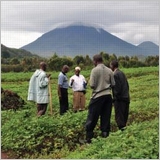 |
Book: Collaborative Approaches in Natural Resource Governance A new book co-edited by Dr. Andy Hall provides a rich account of new and flexible partnerships in the field. We learn how 'adaptive collaborative approaches' can synergize different types of learning, foster collaboration among stakeholders, and nurture innovative development processes. The book reviews several new approaches designed to cope with the social and biophysical complexity of natural resource systems. Contexts range from community forestry to floodplain management, drawn from case studies in Bangladesh, Ecuador, Nepal and Zimbabwe. |
|
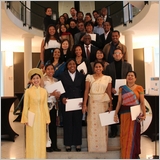 |
Research Skills and Methods: Programme Update In December 2012, 33 participants from the Research Skills and Methods (RSM) programme, co-organized by the Maastricht Graduate School of Governance and the Maastricht School of Management, successfully completed their 12-week training module. Both the participants and organization evaluated the programme positively, so we aim to expand the modules in 2013. Two significant changes are forthcoming: a second period of courses as well as shorter versions of the programme (a 12-week version, with NFP scholarships, as well as 8-week and potentially 4-week modules). |
|
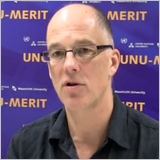 |
Meantime Media Until next time, in early April, please keep an eye on our media channels below. Recent highlights include Professor Mark Bevir giving a short introduction to Governance, and Dr. Franziska Gassmann presenting her new report on social protection in Cambodia. FLICKR photo channel PODCAST audio channel PREZI visualizations channel YOUTUBE video channel Image credits: Please see links. |
|
- ABOUT US
- RESEARCH
- EDUCATION
- The Graduate School
- PhD Programme
- MSc Programmes
- Capacity Development
- News
- Design and Evaluation of Public Policies (DEPP)
- Design and Evaluation of Innovation Policies (DEIP)
- Evidence-Based Policy Research Methods (EPRM)
- Migration Management Diploma Programme (MMDP)
- Moving the Migration Policy Agenda Forward (MMPAF)
- Online Courses
- Short Courses (Masters)
- Tailor-made programmes
- UNU-MERIT, ITU Academy Training Centre
- Alumni
- Academic Funding
- NEWS
- EVENTS
- PUBLICATIONS
- LIBRARY





